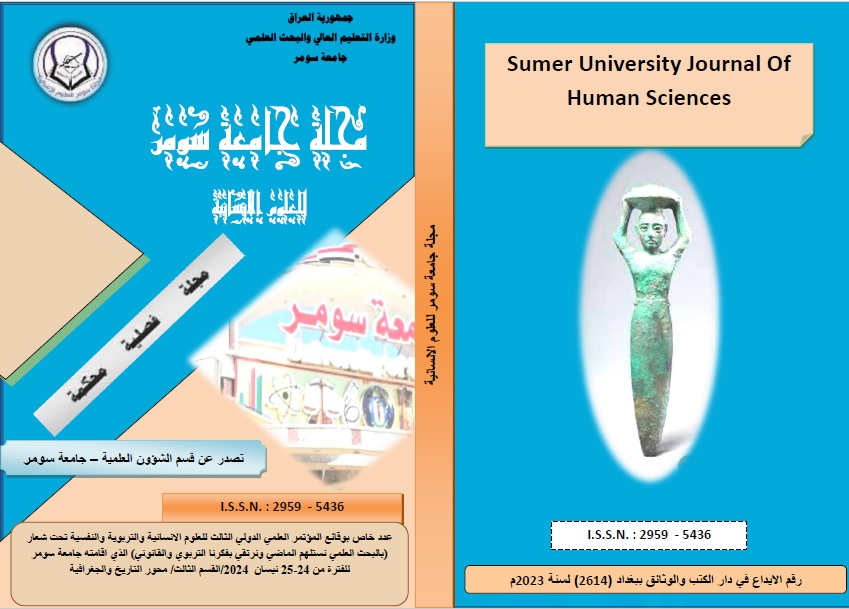The Impact of Kemalism in Shaping the Features of the Turkish state, leading to the Ataturk principles (1918-1946)
Abstract
The modern state of Turkey was established under the leadership of Mustafa Kemal in 1923, according to the foundations and principles he formulated to take on a Western, secular, European-style character. These foundations were called the Kemalist principles, which worked to consolidate state relations and achieve national sovereignty, separate from the eastern Islamic past. These principles imposed a number of Political transformations through which the Sharia courts are abolished, laws are borrowed from Western constitutions, and social transformations are created by eliminating Islamic aspects and replacing Western ones.
The era specified for the study was characterized by the establishment of the Turkish Republic during the reign of Kemal Ataturk (1923-1938) and the conclusion of the Treaty of Lausanne, which granted Turkey its independence and abolished foreign privileges therein. Mustafa Kemal assumed power in Turkey, and he developed Turkey and tried to raise it to the level of Western countries after he practiced the policy of modernization. At all political, economic, social and cultural levels and practicing the Westernization policy in Turkey.


